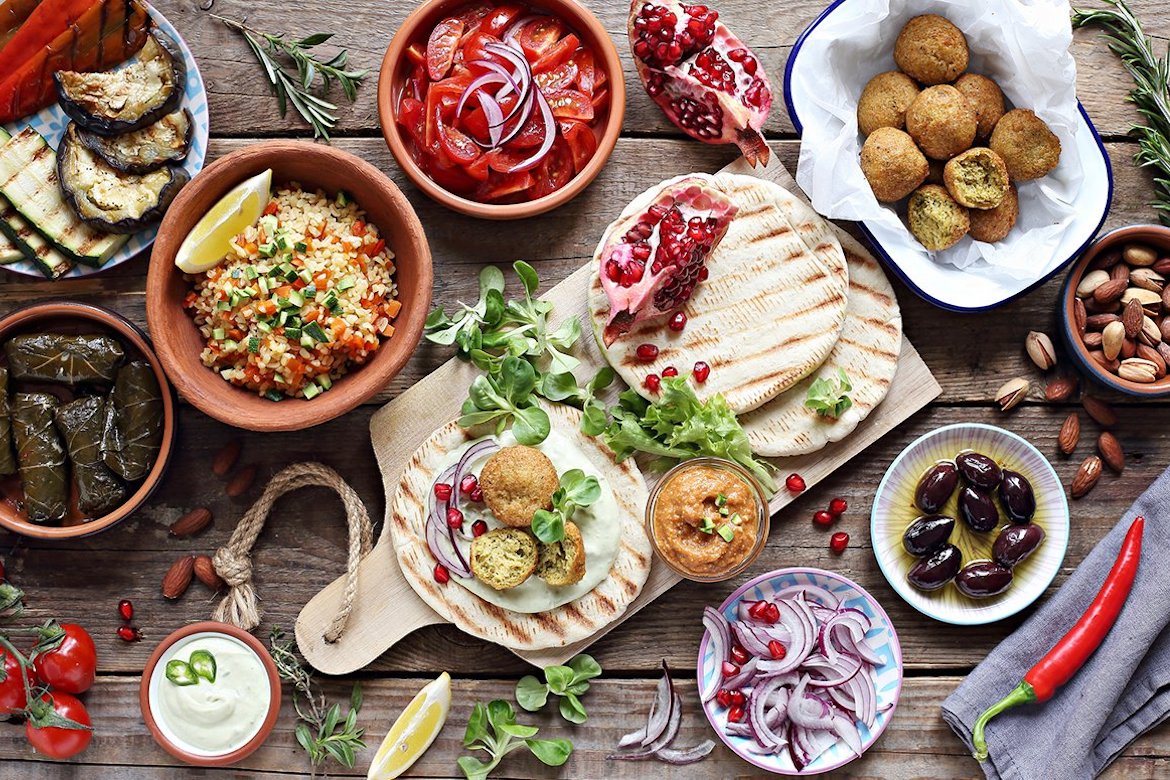“Just as food causes chronic disease, it can be the most powerful cure.” – Hippocrates
Hippocrates of Kos was a Greek physician born in 460 BC, with a holistic view of medicine.
As the father of medicine, Hippocrates had many tools in his toolbox, most of which we still use today and are now supported by scientific studies.
Read on to learn which foods in your pantry are “medicine,” according to Hippocrates.
1. Thyme
Greek thyme is a flavorful culinary staple in our pantry with a rich history.
In ancient Greece, physicians like Hippocrates used thyme for medicinal uses to treat respiratory infections and improve digestion. One study showed thyme’s effectiveness as a treatment for acute bronchitis. [1]
2. Extra virgin olive oil (EVOO)
Did you know that the Hippocratic Code lists over 60 unique medical uses for olive oil? It’s that healthy.
For optimal health benefits, choose extra virgin olive oil (EVOO). It contains a high concentration of polyphenols, which are powerful compounds that can reduce your risk for death and heart disease [2] and even support immunity. [3]
3. Greek mountain tea
Hippocrates and other physicians used Greek mountain tea to treat wounds, improve digestion, boost immunity, and support mental health.
4. Lentils
Lentils are a popular component of the Mediterranean diet today. They’re high in fiber and packed with plant protein!
In ancient Greece, Hippocrates recommended lentils as a treatment for ulcers and hemorrhoids.
5. Kalamata olives
Fun fact: Olives are fruits. And, they’re nutrient-rich fruits.
Similar to EVOO, olives contain antioxidants known for their many health benefits. [2, 3] Additionally, Kalamata olives are high in fiber, low in calories, and taste delicious.
6. Red wine
“Wine is an appropriate article for mankind, both for the healthy body and the ailing man.” – Hippocrates
He considered red wine an important element of your diet to enjoy (in moderation) and for various medicinal uses. And, today, we know that red wine contains a compound called resveratrol, which helps reduce your risk for heart disease. [4]
7. Almonds (And nuts, in general)
“Almonds are burning but nutritious; burning because they are oily and nutritious because they are fleshy.” – Hippocrates
Almonds were commonly used to treat colds and other phlegmatic disorders by Hippocrates and other Greek physicians. Overall, all varieties of nuts are high in heart-healthy monounsaturated fats.
8. Greek sea salt
Hippocrates often recommended hot seawater baths to heal ailments. Indeed, Greek sea salt contains important electrolytes and can work wonders for your skin.
Be sure to add salt in moderation when cooking – a little goes a long way!
9. Verbena (Louisa)
In ancient Greece, verbena helped treat fever and plague and was added to a variety of foods. As a tea, it was also believed to support digestive health.
10. Mint
Hippocrates used a variety of mint leaves and plants to reduce joint pain and inflammation, cool the skin, and as a diuretic. If you’ve ever had mint in your food or chewed mint-flavored gum, you’ll recognize the soothing, cooling sensation!
Today, pennyroyal mint is a popular variety of mint that many Greeks still enjoy using.
The bottom line
Do you have any of these foods in your pantry? If so, you’re already using some of the tools from Hippocrates’ toolbox when it comes to medicine. If not, try incorporating some new healthy options into your diet today! Many of the foods listed here are part of the Mediterranean diet, which is consistently ranked #1 on the list of best diets for your health. [6]
References
- Kemmerich B, Eberhardt R, Stammer H. Efficacy and tolerability of a fluid extract combination of thyme herb and ivy leaves and matched placebo in adults suffering from acute bronchitis with productive cough. A prospective, double-blind, placebo-controlled clinical trial. Arzneimittelforschung. 2006;56(9):652-60.
- Gorzynik-Debicka M, Przychodzen P, Cappello F, Kuban-Jankowska A, Marino Gammazza A, Knap N, Wozniak M, Gorska-Ponikowska M. Potential Health Benefits of Olive Oil and Plant Polyphenols. Int J Mol Sci. 2018 Feb 28;19(3):686. doi: 10.3390/ijms19030686.
- John CM, Sandrasaigaran P, Tong CK, Adam A, Ramasamy R. Immunomodulatory activity of polyphenols derived from Cassia auriculata flowers in aged rats. Cell Immunol. 2011;271(2):474-9. doi: 10.1016/j.cellimm.2011.08.017. Epub 2011 Aug 28.
- Das DK, Mukherjee S, Ray D. Resveratrol and red wine, healthy heart and longevity. Heart Fail Rev. 2010 Sep;15(5):467-77. doi: 10.1007/s10741-010-9163-9. Corrected and republished in: Heart Fail Rev. 2011 Jul;16(4):425-35. PMID: 20238161.
- Casas-Agustench P, Salas-Huetos A, Salas-Salvado J. Mediterranean nuts: Origins, ancient medicinal benefits and symbolism. Public Health Nutrition. 2011;14(12A):2296-2301.
- Best Diets 2021. U.S. News & World Report.
About the author
Chrissy Arsenault, MBA, RDN, LD, is a registered dietitian nutritionist and licensed dietitian based in Indianapolis. She obtained her bachelor of science in nutritional science at Cornell University and her MBA at Indiana University Kelley School of Business. She is the founder and CEO of a nutrition communications firm called Pink Pamplemousse LLC, where she creates engaging nutrition and wellness content for clients. She has also coached clients on various health conditions including heart disease, obesity, digestive issues and diabetes over the last seven years. Visit Chrissy’s website.
















